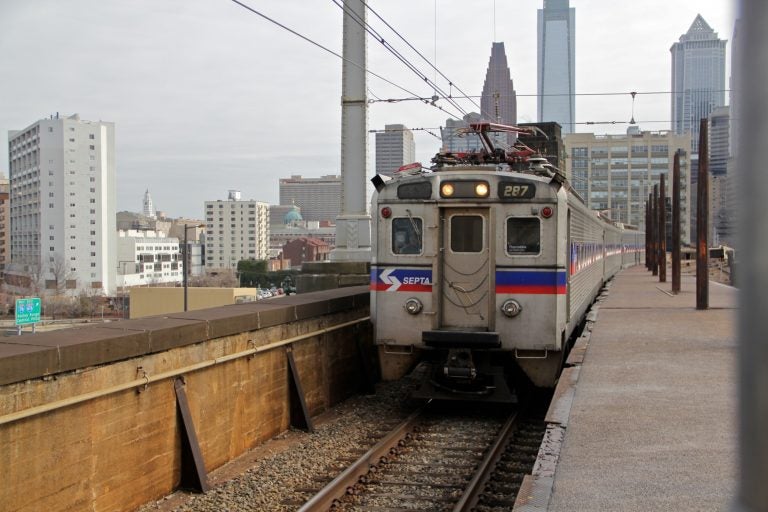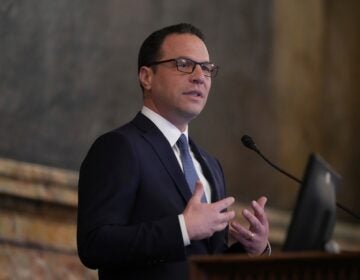What a blue wave could mean for SEPTA’s board
Three of the five counties served by SEPTA have flipped red to blue, and the board that governs the authority is likely to flip right along with it.

A train pulling into 30th Street Station. (Emma Lee/WHYY)
Three of the five counties served by SEPTA have flipped red to blue, and the board that governs the authority is likely to flip right along with it.
Bucks County on Election Day voted in Democratic leadership after nearly four decades of Republican rule. Democrats in Chester County will also have a majority on the County Commission for the first time in history and Delaware County wrested control from Republicans after more than 150 years.
“Democrats are the party for working families and working people, and they’re the party that wants to protect our environment,” said Colleen Guiney, chair of the Delaware County Democratic Party, the day after the historic win. “This is going to create a greater good for all the people in our region.”
The five counties served by SEPTA — Delaware, Chester, Montgomery, Bucks, and, of course, Philadelphia — each get two representatives on the authority’s 15-member governing board. Currently, Republican appointments hold the majority, eight to seven.
County officials appoint the board reps to serve five-year terms. The remaining five seats on the SEPTA board are appointed by state officials — one by the governor, two from the state house, and two from the state senate.
Board member Charles Martin, a Bucks County appointee, and an outgoing Bucks County commissioner says the board doesn’t make decisions along party lines. He recalled only one or two votes that weren’t unanimous.
“It’s been a very congenial group,” said Martin, who has been on the board for nearly 20 years. “Be they Republican appointees or Democrat appointees doesn’t really seem to have mattered much, and folks have worked together for the betterment of the transit agency.”
Martin expects to retire at the end of next year.
“I think SEPTA will hopefully continue to improve and whoever is appointed will work for the betterment of the region and that’s what SEPTA is there for,” said Martin, after listing the authority’s efforts to reduce its carbon footprint, update its fare system with the SEPTA Key card and improve infrastructure.
Bucks County commissioner-elect Bob Harvie says he is focused on transitioning into his new position. But he knows his constituents want more service in the northern part of the county. For example, residents of Upper Black Eddy have to drive about 40 minutes to Doylestown if they want to catch a Regional Rail train.
He says he is eager “to take a look and see what we can do to improve service for people who need it.” And that includes Philadelphia.
“I would want to see the system operate as best it can in all its areas,” Harvie said. “It’s not just residents of Philadelphia who use SEPTA in Philadelphia.”
Delaware County’s new all-Democratic board can choose a new appointee after Thomas Babcock’s term wraps up in 2021.
Commissioner-elect Elaine Paul Schaefer says the board wants to address congestion, energy efficiency and accessibility, which falls in line with SEPTA’s current efforts. However, there’s always room for improvement, she says.
“The investment you make in public transportation and improving public transportation pays off in spades in the end, on all of those fronts,” Schaefer said. “The more we invest, the more efficient we make it, the better off all of our residents will be.”
WHYY is your source for fact-based, in-depth journalism and information. As a nonprofit organization, we rely on financial support from readers like you. Please give today.







